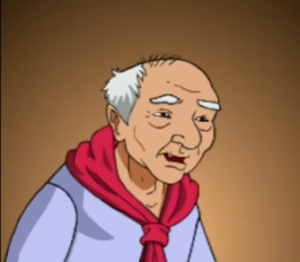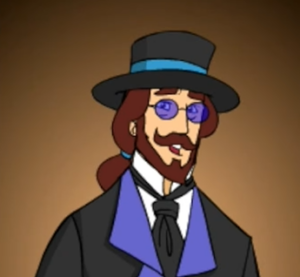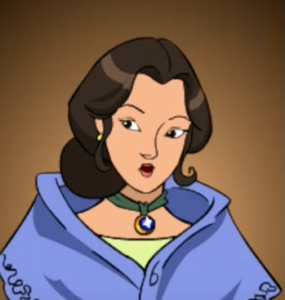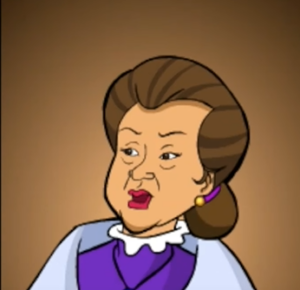El Filibusterismo (El Fili) – Chapter 27
Chapter Title: The Friar and the Filipino
Setting: Padre Fernandez’s office
Characters:
- Isagani
- Padre Fernandez
Plot:
Isagani and Padre Fernandez have a discussion on how friars should treat students.
Chapter Summary:
The chapter begins with the quote:
Vox populi, vox Dei
(Voice of the people; voice of God)
A capista says Padre Fernandez wants to speak with Isagani. Isagani goes to his office. Padre Fernandez tells Isagani that he likes it when young men can express themselves, even if they have different beliefs. Padre Fernandez heard Isagani preaching to students outside and, says that he knows that Isagani was at the dinner. He says Isagani can take a seat but Isagani remains standing.
Padre Fernandez asks what he should do when students treat friars nicely but then talk badly about them behind their backs. Isagani explains that anyone who doesn’t agree with the powerful is punished, so only fools would be honest about what they really think.
Padre Fernandez argues that he always let Isagani speak up in class (but not others, as Isagani is an exception) and that if that were untrue he would’ve corrected him. Isagani says Padre Fernandez is also an exception and he asks Padre Fernandez for another approach.
Padre Fernandez is surprised because Isagani is talking to him like they’re equals, even if he calls Padre Fernandez “Professor”. He tells Isagani not to look at him as his professor and asks what the Filipino students want them to do. Isagani is surprised and says they should do their duty. Padre Fernandez asks how they have not done, their duty and what duties they would be assigned. Isagani says that as a Filipino student he wants the friars to improve and guide them to be honest, prosperous, intelligent, virtuous, noble and loyal.
Isagani asks if the friars are doing that. Padre Fernandez first says they are but Isagani says Padre Fernandez himself is but the rest of the order (the Dominicans) is not. Isagani says friars in towns limit education, and that the friars who turn schools into a business destroy enthusiasm and dignity of the students, and teach false principles and ancient ideas.
Isagani points out that the government tries to get the best people to keep criminals from starving but when it comes to educating the youth, the government uses an organization (the church) that does not like teaching or advancement. Padre Fernandez says those are harsh accusations.
Isagani says that friars say it’s not good for students to enlighten themselves because they will become independent and that is considered a bad thing. The students are mad because the friars don’t want to educate them properly. Padre Fernandez says that education is only for those who deserve it, and not for those who don’t have morality. Isagani asks why there are men without morality and Padre Fernandez says they inherit it.
Isagani says that they are what they are because friars made them that way. That for three and a half centuries friars have not helped them improve so it is the friars’ fault. He compares friars to a sculptor who cannot produce anything good. Padre Fernandez says the ‘material’ for sculpting must be bad and Isagani says that the sculptor is stupid then because he keeps wasting time and cheating, stealing money for no reason without producing anything good.
Padre Fernandez feels as if Isagani is winning the argument. He says that that they are all at the mercy of the government in the end, and that the government will throw the friars out if the students do not. Isagani says that if that is the case, then the government purposely wants them to be demoralized.
Padre Fernandez says that the government has good intentions but sometimes despite that, the consequences can be bad. The government makes laws but people will always find ways to break them because if something is forbidden, the more people want to do it. Therefore, the flaws in the system are the government’s fault.
Isagani asks why they impose a society on others if they know it’s flawed. Padre Fernandez says they are going off-topic. Isagani asks why they don’t ask those harmed by society if the society is defective. Padre Fernandez says again that it is off-topic but Isagani says if the friars will hide behind the government, then the students must address the government.
Padre Fernandez says he cannot be responsible for the actions of the government. He can only do what he can do within his power for students. Isagani requests that the friars not oppose the freedom of education, to push for it instead. Padre Fernandez says that is suicide. Isagani says it is better to ask for passage than to “trample” (meaning to do it without asking), and Padre Fernandez says he should ask something that does not cost so much so there will still be trust between them.
Isagani says the students would react better if the professors treated them better. Padre Fernandez asks if students complained about his conduct. Isagani says he is speaking in general, and not about Padre Fernandez specifically. Isagani says the students barely gain anything from studying and in fact they lose their dignity from school. The more that learning is suppressed, the more the students want to learn because humans always instinctively want to learn things. The students deserve a chance to earn money and have a livelihood since they pay money and give their lives to the State.
Padre Fernandez says no one is forcing students to study but Isagani says the government is, because that uneducated Indios’ rights are denied. Isagani asks if Padre Fernandez wants laborers instead of making people as educated as him.
Padre Fernandez says he wants knowledge for those who will know how to use it. He says when students use knowledge properly, the professors will be considerate. Therefore, the students should change first. Isagani asks how can the students change first when they who have more difficulty changing? He points out even Padre Fernandez has suffered just from wanting to be fair and fulfill his duty.
Padre Fernandez says he will talk to the other friars but they might not believe the students. Isagani says his friends will not believe Padre Fernandez’s words either. Isagani leaves and Padre Fernandez sees him on the street, telling a friend he is going to the Civil Government to see the posters.
Padre Fernandez says he is jealous of the Jesuits who educated Isagani (even though they disowned Isagani after he was arrested).
Trivia:
Quotes:
Padre Fernandez: I have always liked young men who express themselves clearly and who think and act for themselves; it does not matter to me that their ideas may differ from mine.
Padre Fernandez: There are young men who slander us behind our backs, and when face to face, kiss our hands and with vile smiles beg for a glance! Puf! What would you have us do with such creatures?
Isagani: Here, all independent thought, all words which are not an echo of the will of the powerful, are judged as subversion, and you know very well what that means. A fool is he who allows himself to say in a loud voice what he thinks, and risks suffering persecution!
Isagani: When I find myself before a person whom I esteem and respect, I prefer to be the accused rather than the accuser; I prefer to defend myself than to offend.
Isagani: Liberty is to man what education is to the mind, and the friars not wanting us to have it is the source of our discontent.
Padre Fernandez: Education is not given except to those who deserve it, to give it to men without character and without morality is to prostitute it.
Isagani: What we are, you have made us. A people which is tyrannized is obliged to be hypocritical; those to whom the truth is denied give you falsehood.
Isagani: If after three centuries and a half the sculptor has been able to produce nothing more than a caricature, indeed, he must be truly stupid.
Padre Fernandez: The people hate the soldier or the guard who makes the arrest, and not the judge who decreed the imprisonment.
Padre Fernandez: There are beliefs, there are theories and laws which, dictated with the best of intentions, produce the most deplorable consequences.
Padre Fernandez: To make criminals of a people you have only to doubt their honesty.
Isagani: The students, besides not gaining any great benefit from the years spent in classes, often leave there shreds of their dignity, if not all of it.
Isagani: There is the innate desire in man to cultivate his intelligence, a desire that here grows more powerful the more it is repressed.
Isagani: He who gives his gold and his life to the State, has the right to require of it that it give him the light to better earn his gold and better conserve his life.






